 PESHAWAR, Aug 27: The United Nations pledged to help the internally displaced persons of Bajaur Agency in returning to their homes by offering them a relief package for three months, official said.
PESHAWAR, Aug 27: The United Nations pledged to help the internally displaced persons of Bajaur Agency in returning to their homes by offering them a relief package for three months, official said.
“Those who want to repatriate should be encouraged through UN relief package. The UNHCR will support 2,000 families, Unicef will provide 20,000 hygiene kits, WFP will provide food package to 50,000 families, WHO will provide emergency health kits enough to cater to the need of 20,000 persons for three months,” said WHO country chief Dr Khalife Mahmud Bile.
He pointed out that IDPs needed potable water, sanitation, camps hygiene and toilets. He added that non-availability of those facilities posed potential threats of diseases’ outbreak.
He said that a multi-clusters rapid assessment in 25 sites in Dir Lower had shown that IDPs were faced with scarcity of infant food, shelter and security besides poor hygiene.
Dr Bile arrived in the city on Wednesday to discuss the situation in the relief camps set up for Bajaur IDPs with the chief minister, chief secretary and other relevant quarters. He offered a three-month contingency plan to ensure repatriation of the people displaced by military operation in Bajaur Agency.
According to him, mass measles vaccination and vitamin-A supplementation for 36 per cent of the IDPs has been planned besides carrying out registration of displaced persons living outside camps. For this purpose, he said, support would be provided by UN for establishment of cell at the office of the Provincial Relief Commissioner for better coordination.
Flanked by country chief of WFP Wolfgang, WHO operation officer for NWFP and Fata Dr M. Saeed Akbar Khan and UNHCR chief M. Adar, he said the UN was making efforts to scale up the relief activities for IDPs of Bajaur, Swat and Waziristan areas apart from those affected by floods.
On this occasion, the officials said that there were about 250,000 IDPs but due to cultural constraints most of them preferred to live with their relatives, which was hampering their registration.
In the wake of impending military operation against the militants in tribal areas, the number of IDPs was constantly increasing. The exact number of IDPs could be far more than the recorded statistics. The WHO chief was told that the government could not cope with the issue of IDPs alone because of limited resources and requested for coordination and intervention of the UN to arrange camps where basic needs could be provided to the displaced people.
Dr Bile announced that a joint UN mission would visit Dir Lower to build confidence of government and community in UN.
NWFP Chief Secretary Sahibzada Riaz Noor informed the UN representatives that the government had established 34 camps wherein about 7,956 families were living while 8,019 families preferred to live with their relatives. The total number of displaced persons recorded so far was 92,163 but it was increasing with each passing day.
He said that it was an uphill task for the government to look after thousand of displaced families owing to its meagre resources. He requested the donor agencies to come forward to cope with the situation.
A provincial relief coordination committee with the relief commissioner as its head was also constituted to gear up relief activities in various camps. It will meet once in a week to review the relief activities. The chief secretary also directed the health department to increase the number of doctors particularly of female ones, and dispatch another team of specialist doctors to Dir lower to prevent the possibility of disease outbreaks.
Mr Noor informed the UN mission that government had provided 4,000 tents, 7,000 blankets and 5,000 mattresses to IDPs and an amount of Rs100 million had been released for relief activities. The rehabilitation and relief work required at least Rs5 billion, he added.
Dr Bile said that disease early warning system (DEWS) had already been implemented in Peshawar that would be replicated in the affected districts.
“The implementation of DEWS prevented 350 outbreaks in the earthquake-hit areas in 2005,” he said.

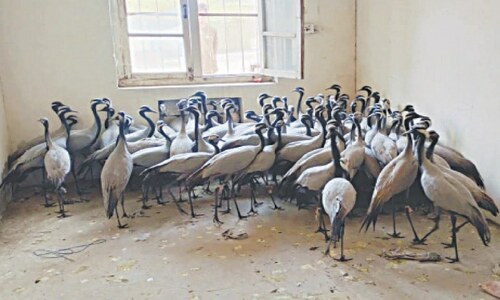















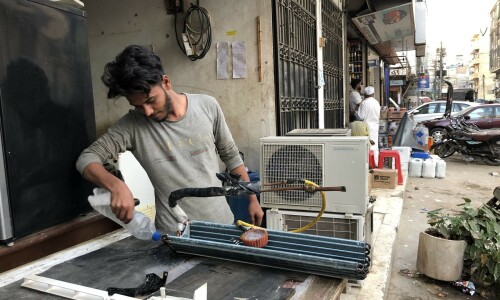








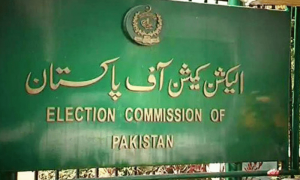
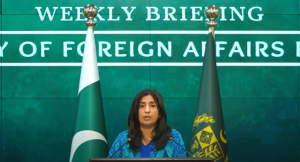
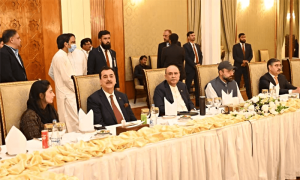
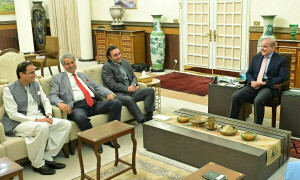


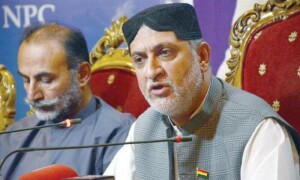

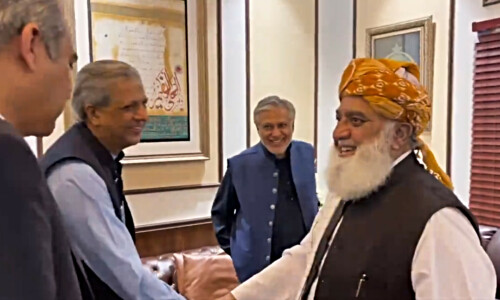










Dear visitor, the comments section is undergoing an overhaul and will return soon.